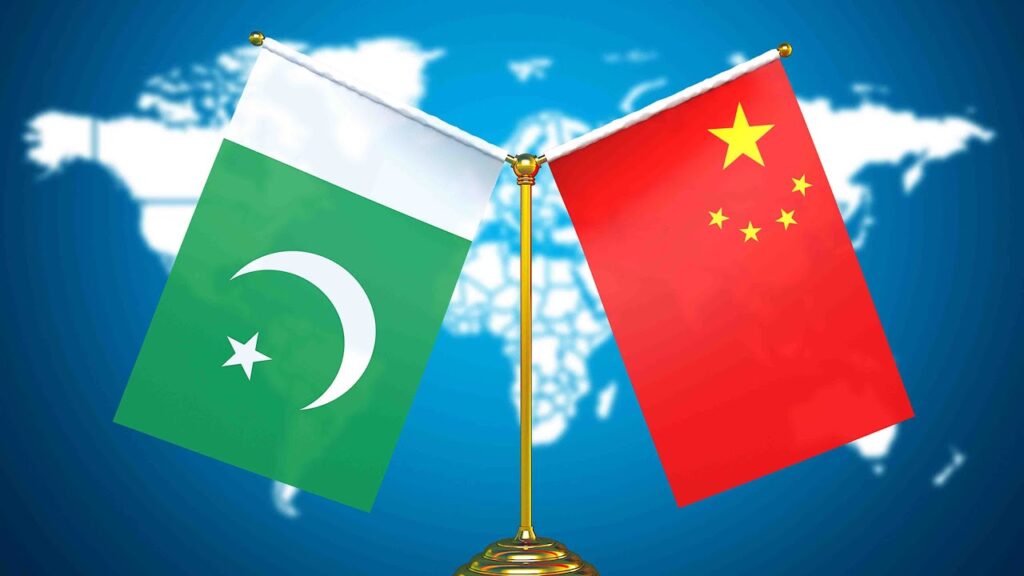Pak Sino Friendship: Alliance of Trust

The story of Pakistan–China relations is one of the most remarkable chronicles of modern international diplomacy, stretching from the birth of the People’s Republic of China on October 1, 1949, to the present day. At a time when the world was polarized by Cold War politics, Pakistan and China found in each other a trusted partner, a relationship that steadily grew from cautious beginnings into a towering edifice of friendship, cooperation, and unyielding support across every sphere of national life. This bond has endured regime changes, global upheavals, and the shifting sands of international politics, yet it stands today as a shining example of unbroken trust between two sovereign nations.
When Chairman Mao Zedong and Premier Zhou Enlai charted the course of the new China, Pakistan was among the first countries to recognize the legitimacy of their government. At a time when the West was hesitant, Pakistan chose courage over convenience, and this act of foresight laid the foundation of a relationship that has since matured into brotherhood. During the presidency of Field Marshal Ayub Khan, this understanding blossomed into strategic cooperation. It was Ayub Khan’s vision, supported by the statesmanship of Zhou Enlai, that placed the two nations on a road of collaboration. The construction of the Karakoram Highway, often hailed as the Eighth Wonder of the World, was a monumental symbol of this partnership. Built through mountains that defied engineering, it became not merely a passage for commerce but also a corridor of friendship, tying the people of Pakistan and China in bonds deeper than geography.
It was during the era of Prime Minister Zulfikar Ali Bhutto that the alliance reached new heights. Bhutto, with his dynamic diplomacy, became a bridge between Beijing and the world. It was Pakistan that opened doors for China to the international community by playing a critical role in ensuring China’s rightful place in the United Nations and its permanent seat in the Security Council. This was no ordinary service; it was a gift of history, remembered in Beijing with gratitude and acknowledged in Islamabad with pride.
Through subsequent decades, every regime in Pakistan—whether civilian or military—found in Beijing an ally whose friendship was beyond expediency. China, in return, stood by Pakistan at every difficult hour. Whether it was the wars of 1965 and 1971, or the turbulent years that followed, Beijing’s moral, diplomatic, and material support never wavered. The Silk Route was reimagined through the Karakoram Highway, and the steady march of trade and cultural exchange continued to weave the destinies of the two nations together.
In the twenty-first century, the friendship has ascended to new dimensions under the banner of the China–Pakistan Economic Corridor (CPEC), the crown jewel of the Belt and Road Initiative. Through CPEC, China has poured billions into Pakistan’s infrastructure, energy, ports, and industry. Gwadar, once a quiet coastal town, has been transformed into a deep-sea port with global potential. Highways, railways, power projects, and industrial zones are not merely investments in Pakistan’s economy but commitments to its stability and progress. At a time when the international financial climate has often been unkind, China has extended generous loans, rolling over debts and providing crucial assistance to steady Pakistan’s economic wheel.
Defense cooperation remains another vital pillar. The co-production of the JF-17 Thunder fighter aircraft is a triumph of shared technology and mutual trust, giving Pakistan’s Air Force a modern edge while strengthening self-reliance. Collaboration has also extended to the Navy and Army, where China’s technical expertise and supply of modern equipment have fortified Pakistan’s defense capability. Joint exercises, training programs, and transfer of technology have deepened military ties, ensuring that both countries remain secure in the face of external threats.
Equally important is the technological support that China has extended to Pakistan in fields beyond defense. From space technology to telecommunications, from nuclear energy to digital infrastructure, Beijing has offered Islamabad tools of progress that few other nations have been willing to share. This transfer of knowledge has placed Pakistan on a path of modernization that might otherwise have been denied to it.
At every international forum, China has defended Pakistan’s cause with consistency and courage. Whether the issue has been Kashmir, economic crises, or global security debates, Beijing has lent its voice to Pakistan’s position, resisting the pressures of powerful adversaries. Pakistan, in return, has remained steadfastly aligned with China, affirming the principle that their destinies are intertwined. Together, they have faced global challenges, whether of terrorism, extremism, or international isolation, with the conviction that their partnership is shield enough against the storms of time.
It is often said that nations have no permanent friends, only permanent interests. Yet the Pakistan–China relationship is an exception to this rule. Built on shared values of sovereignty, mutual respect, and non-interference, it has risen above the ebb and flow of international self-interest. The names of Mao Zedong, Zhou Enlai, Ayub Khan, and Zulfikar Ali Bhutto are inscribed at the foundation of this brotherhood, but their legacy has been carried forward by every leader in both lands.
Today, as Pakistan and China look to the future, the friendship of the past serves as both anchor and compass. The Karakoram Highway has transformed into a network of economic corridors; the diplomatic support of the 1970s has evolved into a strategic partnership that shapes regional security; the defense cooperation of the past decades has blossomed into joint ventures of cutting-edge technology. The bond remains as firm as the mountains it traverses, as deep as the seas it touches, and as enduring as the ideals of sovereignty and dignity that both nations hold sacred.
In the shifting global order, where alliances break and powers realign, the Pakistan–China friendship stands unshaken, a testament to trust that has withstood wars, crises, and changing tides. It is, and shall remain, a friendship higher than the Himalayas, deeper than the oceans, and sweeter than honey—an immortal pledge between two nations who have chosen loyalty over expediency and brotherhood over mere diplomacy.


